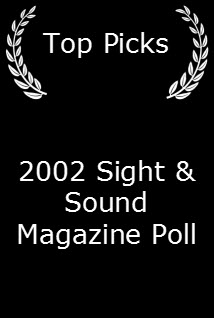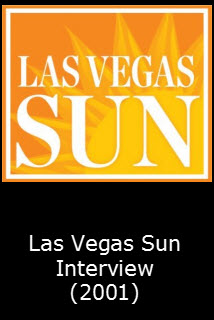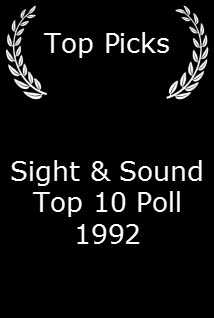The Values in Dirty Harry (1971)


Content by Tony Macklin. Originally published on March 1, 2009 @ tonymacklin.net.
People who most appreciate action genre films are those who go beyond the literal. They recognize that there is a creator with a vision behind the action and that his film has insight; the action is an end in itself. Of course viewers are aware of the major surface elements, such as good-versus-evil, but theme in its detail gets overwhelmed by action and style. Violence and conflict are exaggerated; the actor becomes a persona; everything in the action movie seems to draw one away from analyzing it. It is visceral and intuitive. In many ways, in action movies, style is all.
It is unfortunate and ironic that style often seems to work against theme because a full appreciation of an action movie necessitates an exploration of its themes. Often the significant values of the movie and its director get lost in the action. And the film becomes as violated by the action as do its characters.
Don Siegel's Dirty Harry is an apt example of a film with a vision that few people perceive beyond its violent, flamboyant surfaces. If director Siegel might be a bit uncomfortable with a close reading of his movie, he also might be pleased that the viewer doesn't see Dirty Harry as just a movie of action, but also sees it as a movie of values.
It is too restrictive to see Dirty Harry devoid of its vision. Dirty Harry is a film whose vision lies beyond the literal. Released in 1971, it was a film that was applauded and condemned for its surfaces. It starred the supercool Clint Eastwood, has an odious villain Scorpio (Andy Robinson), and enough shoot-outs, chases, snappy dialogue, and violence to satisfy most action-oriented commercial audiences. It was an effective motion picture, but since its effects were so vivid, they really hampered efforts to deal with its themes.
In terms of plot Dirty Harry is simple. Scorpio, a pathological, bigoted killer kills a girl in a swimming pool and blackmails the city of San Francisco with the threat of more killings. To Inspector Harry Callahan's disgust the mayor capitulates, which leads to two other murders. Finally Hanny catches Scorpio, but because Harry illegally searches Scorpio's premises and tortures him, the killer is set free. Harry follows Scorpio, and Scorpio pays to have a brutal beating inflicted on himself, which he then blames on Harry. Scorpio then kidnaps a bus with schoolchildren, again to threaten the city. Harry tracks him down and finally shoots him. At the end, Harry throws his badge away -- his job is through.
During the film Harry is given few motivations; one of the few is that his wife was killed by a driver crossing the center line. At the end, Harry seems justified, the bad guy is dead, and the rules of the genre have been met. The film is so intense that it leaves little time for questioning, little time for more than reflexive interpretation. We go in with our preconceptions and leave with them intact. But should we? Are Harry and his world different from what they appear to be?
The themes in Dirty Harry seem simple and clear; the individual against society, and the hero against the establishment. It is a visceral film. Good versus evil. Get the villain. Kill the bastard! But there is more to Dirty Harry than this. Is Harry's extremism justified? Is there more than a hero-villain relationship between Harry and Scorpio? And what does the film suggest about America's values, circa 1971? What is left of the frontier in the modern world, after Vietnam? All of the above are issues with which the film substantially deals.
Harry, the hero, is flawed. Of course his flaws can't be too pronounced because of commercial considerations. He has to appear perfect. Harry is first and foremost a professional. But his professionalism is betrayed by his voyeurism. When he and his partner Chico (Reni Santoni) are on surveillance on a rooftop, Harry lets Scorpio sneak onto another rooftop unseen because Harry is watching a naked girl and a visiting couple through his binoculars. Another example of his voyeurism occurs when he peers through a window at "Hot Mary" and her boyfriend and is attacked by neighbors. In addition to his voyeurism, Harry shows hints of bigotry, although this trait has been softened, again obviously for commercial reasons. When Chico asks Harry -- who has been said to hate all minorities -- how he feels about Mexicans, Harry says "Especially [I hate] spics." But we don't really believe him, because he winks when he says it.
One of the few scenes that shows Harry doesn't care about other's rights occurs when he almost hits some pedestrians and yells at them, "Get out of the way, hammerhead." This is funny but especially ironic since Harry's wife was killed by a motorist. If Harry doesn't care about others' rights, in most cases he would seem foolish to care. Harry's forcefulness is preferable to the mayor's acquiescence. The liberal mayor (John Vernon) can't even say the word "nigger" on Scorpio's initial blackmail note. And he tells Scorpio on the phone, "You will not be molested in any way. I give my word of honor on it." Behind him stands the American flag. Of what value is his "word of honor"?
When Harry shoots Scorpio and wounds him on the football field (another nice symbol of American competition) and approaches his threateningly, Scorpio screams, "I have the right to life. I have rights!" Ironically, Scorpio has taken others' rights to life but insists on his own. Scorpio's release because Harry has abused his legal rights by illegal entry and torture seems an utter absurdity. After torturing Scorpio the DA asks Harry, "Where have you been?" since Harry ignored modern law. And a consulting professor agrees that the case against Scorpio has been invalidated by Harry's actions. But Harry understands Scorpio as no one else does. He says, "This guy's going to kill again." When the DA asks, "How do you know?" Harry answers, "'Cause he likes it."
Harry understands Scorpio because they are alike, and this is where the film becomes perhaps most interesting. One of the first associations between Harry and Scorpio is that both watch others, Harry through his binoculars and Scorpio through his telescopic sight. Before the initial killing Scorpio is looking through his telescopic gunsight, and he watches the homosexual male through it when he is going to kill him. But there are much greater similarities between Harry and Scorpio than their voyeurism. Siegel carefully sets up these parallels. After their violent encounter at the cross in the park when Scorpio stomps Harry and tries to kill him, and Chico saves Harry and Harry plunges his knife into Scorpio's leg, Siegel parallels Harry's and Scorpio's struggling to get up in different places in the park.
Strangely, both men and Christ-allusions. Harry is beaten by Scorpio beneath a huge cross in the park, and behind Scorpio's head after he has been shot by Harry on the football field is a cross of lime. Also, Harry has a wound in his side. The Christ allusions are as ironic as the distorted cross, peace-symbol belt buckle Scorpio wears. Harry as peace officer is a similar irony.
The peace symbol leads one's attention to Vietnam. Perhaps both Harry and Scorpio are products of the Vietnam experience. Scorpio has his boots laced in a military manner. And the shoot-out on the rooftops is a war with high-powered weapons. The battle in the park is in an almost alien setting, suggesting either Vietnam wilderness or the Old West wilds. It is perhaps going too far to suggest that Scorpio's red ski-mask is symbolic, but it certainly is striking, especially when Harry plunges his knife into Scorpio's leg and Scorpio lets out a wild whoop. The ethnic motif is carried further when the first girl who sings on the schoolbus is oriental, and an oriental boy sings at the window of the bus.
There are no women in Harry's life. Scorpio is a rapist. But their major relationship is with each other. Harry watches the naked girl, watches two lesbians, but is oblivious to naked women dancing in a bar -- Scorpio is his prey. He has come down to Scorpio's level. The conflict between Harry and Scorpio has sexual overtones, such as Harry's knifing of Scorpio. And when Harry takes out his pistol, Scorpio says, "My, that's a big one." In a sense Harry needs Scorpio to fulfill himself.
Both Harry and Scorpio look alike, although this isn't initially evident because Harry's hair is well-sculpted and his expression is often stoic, while Scorpio's hair is unruly and his expression is often distorted in fury. But both men have bright blue eyes, long blondish hair, and are lanky. Both are wounded in the leg (Harry by a bankrobber early in the film and Scorpio by Harry). Scorpio's limp is more pronounced, giving him a herky-jerky quality.
There is a wonderful shot in Dirty Harry which visually catches the psychological relationship. One could say they are both parts of one personality. When Harry is on top of the speeding schoolbus, he leans down in front of the driver's window. Scorpio is driving. Both men have their pistols in their hands. It is a mirror image with the men on opposite sides of the window. This shot brilliantly suggests that Harry and Scorpio are one. When Harry finally shoots Scorpio, he may very well be killing his alter ego. Scorpio frenziedly had made the children on the bus sing, "Row, row, row your boat, gently down the stream. Merrily, merrily, merrily, merrily. Life is but a dream." Ironically, Scorpio's body is gently carried along in the water.
Harry Callahan is an anachronism. He is a frontiersman in modern society. The Maverick as on the subway represents Harry. The schoolbus goes past buffalo now penned in a zoo. In the Old West, Harry would have gone after Scorpio and they would have had their shoot-out. But law and order don't allow him to do so. When Harry suggests that he go after Scorpio, the chief (John Larch) says he doesn't want a "bloodbath." So Harry has to go on a long, circuitous route to his final meeting with Scorpio. Harry is the only one who takes responsibility, although he is an extremist. The chief even refuses to count the ransom money Harry is to carry because he does not want to be responsible. Since society won't be "responsible," Harry has to be, whatever the extremes to which he must go. If society does not choose to be responsible, it creates a "Dirty Harry" to do its dirty work.
Early in the film Harry asks about pay and his superior (Harry Guardino) says to put in for overtime. Harry answers with the refrain of Ethan Edwards (John Wayne) the prototypical western anti-hero in John Ford's The Searchers. "That'll be the day." When Harry is hunting down Scorpio on the schoolbus there is a striking image of him standing alone on a trestle, the lone, tall cowboy waiting for his adversary. As he faces Scorpio for the last time, like the old-time western hero, Harry wings Scorpio in the shoulder while Scorpio is holding a boy in front of him as a shield. Finally, after Harry's goading, the wounded Scorpio reaches for his pistol. Harry blasts him. Then, again like the old-time lawman, Harry discards his badge. The badge number seems significant. It is 2211. Harry has killed his double; now they are both singular.
The sequence shows how the Old West has been replaced by a new society. Much of the gunfight occurs as Harry chases Scorpio in an old mine. After finally killing Scorpio, and tossing his badge into the water, Harry walks away. The camera slowly draws back from the barren site and finally reveals the modern world. Far in the distance, away from the barren waste, are highways with traffic. The Old West is gone.
In Dirty Harry, released in 1971, director Don Siegel is showing us America at the beginning of the '70s. Harry is Inspector 71. It is an America where an antique shop is next to an adult book store. Both are next to an American flag. It is an America where the extremism of Harry Callahan doesn't fit. The vigilante isn't accepted. It is an America where sex is confused. As Chico wryly says going through the park and seeing lovers, "Boys or girls." And Harry's binoculars see a new morality, a morality where tradition is being usurped. Scorpio has an American flag on his refrigerator and a distorted peace symbol on his belt.
Something has been lost. Harry, once full of hate and bitterness, perhaps assuaged, perhaps not, has to throw away his badge. He is an extremist and an anachronism. Like his forebear Ethan Edwards, he will remain an outsider. Harry Callahan is a man of action with no place to go.














